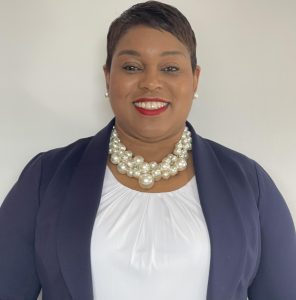No Labels, Please: There is More to Identity Than Meets the Eye
December 8, 2017
What is acting white? Well, it’s not acting black. But what is acting black?
I, to this day, am so confused when my friends say things like, “no offense, but you act like a white girl” or “You’re like an Oreo,” which referred to being white on the inside and black on the outside. These are just some of the remarks that I have heard.
I started receiving these comments after I left my middle school. Before ninth grade, I was never accused by my peers for acting too “white” It wasn’t until I was around a new set of peers that I started to get these remarks. I never thought that I was “acting white” or “acting black,” I was just acting like me; the only person that I knew how to be. Once I started to hear more and more of these comments, I began to feel a little bit self-conscious. It left me wondering, how do you act black? Is it how you dress, act, or speak? Is it the use of slang or no slang? I really had no idea. Did I talk speak proper? Did I listen to the right music? Was it my love for Starbucks? These are all questions that I would stop and ask myself.
All I knew was that to other people I was doing something wrong, but I still didn’t know what it was. I am a pretty well-educated person, so ignorance can’t be it. I listen to the same music as my peers, so that can’t be it. And Starbucks is delicious, so I don’t know who deemed it for “basic white girls,” but nothing will ever stop me from drinking it. On a serious note, I was left confused, because people never told me that anything specific that I did was “white,” they just said that I simply act like I am.
I know that in my case, it has nothing to do with the grades that I get, because I have gotten these remarks from some of my smartest friends. For others, that may not be the case. Putting school first, and acting like a “nerd” might earn them the same comments. An article on Vox.com titled “The myth about smart black kids and ‘acting white’ that won’t die’’ quotes then Senate candidate Barack Obama in 2004 who said, “Children can’t achieve unless we raise their expectations and turn off the television sets and eradicate the slander that says a black youth with a book is acting white.” Obama spoke on the negative stigma around how black youth aiming high in school is supposedly “acting white.”
However, in my experience, it had nothing to do with academics. After doing more research, I learned that there are a lot more people like me, people who receive these comments from their peers. It started to make me very cautious of everything I did and said around my friends. I didn’t want to give them any more reason to take my “black card” away.
Some people really take this seriously. There are many online quizzes that people can take in order to get a percentage of how black they are. I took a few of these quizzes to see what kinds of questions were being asked, and I wasn’t surprised by what I saw. The questions on the quizzes I looked at had to do with music, shoes, food, and the hood. How stereotypical can you be? Why are black people equated with the hood? That type of question is essentially saying that there is just one type of black experience, and that is not the case. Since the questions are mostly based on stereotypes, anyone could probably take it and score high, no matter what race you are.
I came across an article titled, “22 Reasons to Get Your Black Card Pulled” by Mikey Fresh on Vibe.com. The article gave many different scenarios where a person would have their “black card” taken away from them. For example, knowing every character on the show Gossip Girl, but not being able to name the three main characters in Dream Girls could possibly result in the loss of one’s “black card”. It’s like if you don’t like a certain food, or know a certain movie, or know about certain music, that makes you “less of a black person”, and that shouldn’t be the case.
Black people, more specifically African Americans, have worked really hard time and time again to set new standards and get rid of stereotypes. Yet, today it’s black people who call out other black people for not acting “black enough.” From my experiences, if I don’t know a certain music artist or a certain slang word, I feel very uncomfortable. I would never ask, because that would reveal that I am not aware of what they are talking about, and that would leave me open for attack.
Black people, especially the youth, shouldn’t be pressured to act or speak a certain way in order to maintain their “blackness” because that could hinder them from being totally fulfilled.











































